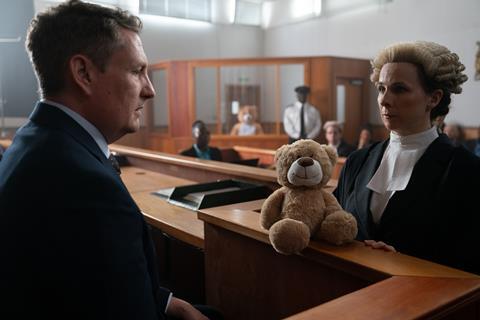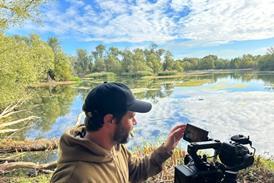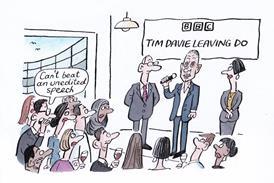“Confronting, funny and raw, O’Sullivan’s documentary – and resulting sitcom – was a twisted triumph”

My Sexual Abuse: The Sitcom, Channel 4
“My Sexual Abuse: The Sitcom was revelatory for viewers as well as for its creator. By allowing us to witness his journey, [Mark] O’Sullivan generously modelled the kind of processing that people normally keep private, often at great personal cost. There is comfort in comedy, but also in bringing what has been hidden into light. Hopefully, this documentary will empower viewers to confront their own trauma – and maybe even laugh in its face. Confronting, funny and raw, O’Sullivan’s documentary – and resulting sitcom – was a twisted triumph.
Emily Watkins, The i
“While the law did what it does, O’Sullivan’s traumatic memories refused to sidle into the recesses. So he decided to pursue closure in a way that made sense to him. And why not? “Doing jokes,” he reasoned, “I don’t feel like a victim, I feel like the victor.” For much of the making-of film he agonised, on his own or in conversation with confidants, over the wisdom and propriety of joking about paedophilia. The most profound of several tête-à-têtes was on a dog walk with his wife, Jen, who blindsided him with her opinion that “a part of you is still trapped in that young boy”. Enlisting comedy to spring him from that trap, the style he opted for was not edgily up-to-date with no laugh track, but something far more traditional: a bright set, a studio audience, mainstream gags and a broad performing style. What better way to portray a dark family secret than to upend the light family sitcom?
Jasper Rees, Telegraph
“As the documentary plays out, we watch the sitcom take shape around further heartbreaking revelations from O’Sullivan and commentary from his wife. She has her own clear, loving perception of where the deep damage to her husband’s mental and emotional life lies. We see that humour is not so much optional as vital; maybe it is hardwired into us. Even during the court case (“uniquely awful” though his cross-examination was), it struck O’Sullivan that the defence barrister’s description of Steve – who had lavished presents and days out on the boy as part of his grooming – as “a bit of a soft touch” was a comical line.”
Lucy Mangan, The Guardian
“Early in the film, O’Sullivan was clearly struggling. “It honestly never ends,” he sighed amid sequences where he described his reliance on antidepressants, the toll it took on his marriage of 17 years to Jenny and a moment where he stared emptily round the courtroom set that reminded him of some of the worst moments of his life. At the end, he said it was the most honest thing he had ever done and you sensed that his face was slightly freer of pain, his shoulders a bit lighter. It was impossible to watch the transformation and not be moved.”
Ben Dowell, The Times
Into The Amazon With Robson Green, Channel 5
“What Robson really loves to do is go fishing. I’ve a suspicion that he signs up for these trips to enjoy a spot of extreme angling. In the South China Sea, that meant fishing from a canoe in the open ocean, using hermit crabs for bait. Here, he was trying to catch piranhas with a trout fisherman’s fly rod. That didn’t work, though at the other end of the boat, Saru was dangling raw meat on a hook over the side and scooping them up by the dozen. How you cook piranha, Robson didn’t explain. I don’t fancy gutting a fish that might gut me first.”
Christopher Stevens, Daily Mail
Camden, Disney+
“As an oral history of the area, Camden is disappointing – you could learn more about its heritage from a five-minute Google. However, it does contain some fun stories. Pete Doherty – always great value – recounts the Clash’s Mick Jones’ involvement in their debut album (he fell asleep watching them perform Up the Bracket – twice!). Questlove, who initially thought of London as a musical backwater, recalls having his mind blown by hearing a jungle version of Anita Baker’s Sweet Love in Camden, eventually bringing drum’n’bass to the US because of it. There is a propulsive energy, too: episodes are loosely themed (indie, club culture, hip-hop and, erm, the rise of Martin and Lipa), but they also shift haphazardly between decades and artists, which – although confusing for anyone trying to grasp a linear timeline of the area – does evoke some of the thrilling chaos of Camden itself.”
Rachel Aroesti, The Guardian





























No comments yet